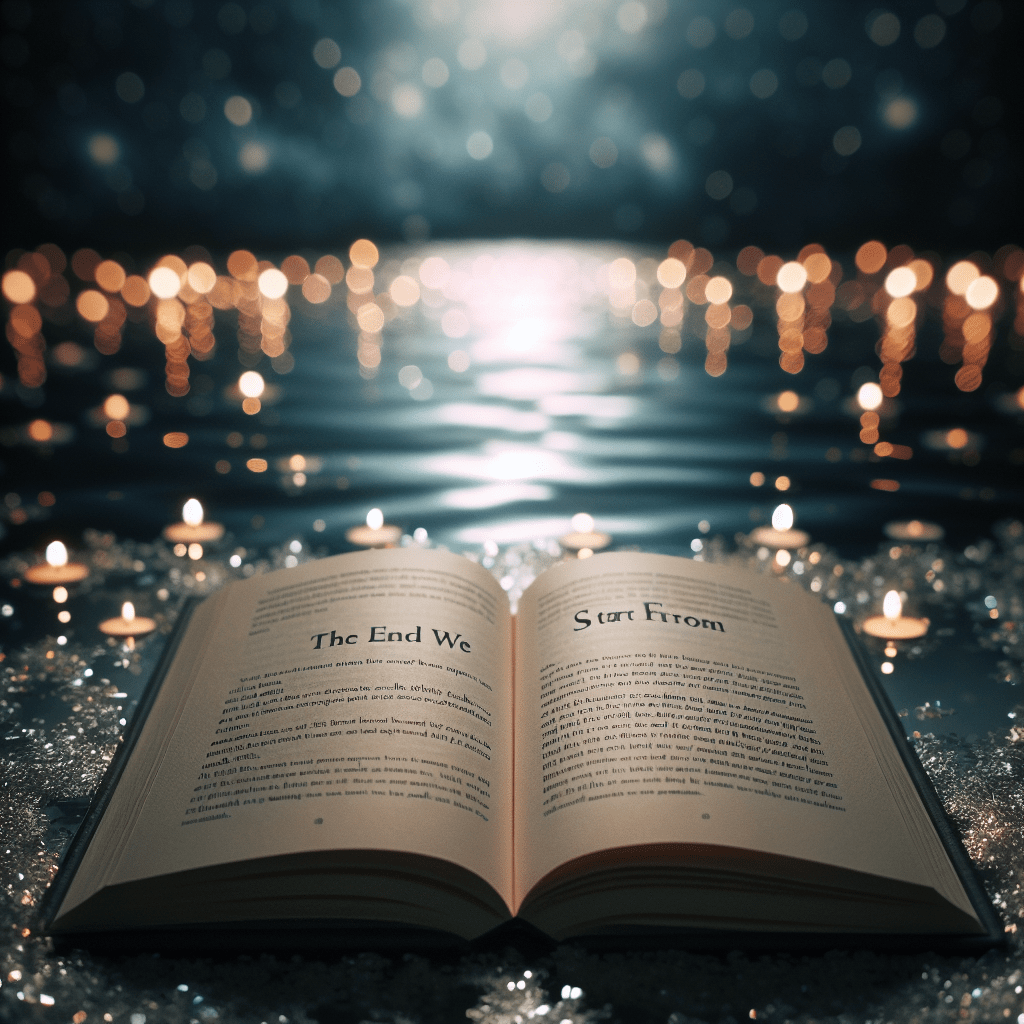Introduction to “The End We Start From”
“The End We Start From” is a novel by Megan Hunter that was published in 2017. It is a striking work of fiction, which combines the genres of dystopian literature and literary fiction. The narrative follows the journey of a woman and her newborn son as they navigate through a flood-ravaged London and Britain. It’s a story of survival, dystopia, and the enduring strength of maternal love in the face of environmental catastrophe. The novel was well-received for its powerful poetic prose, as well as its unique approach to the apocalyptic genre.
Plot Synthesis
The central plot of “The End We Start From” revolves around an unnamed female protagonist who gives birth to her son, Z, amidst a cataclysmic flood that submerges most of London. The story weaves through their initial days in a hospital transformed into a temporary shelter, to their eventual escape in search of safety to their grandfather’s house in the middle of the country, only to be perpetually displaced as the water keeps coming.
Throughout this peripatetic tale, the narrative focuses on the intimate moments between mother and child, even as the architecture of the world they knew crumbles around them. The protagonist’s internal reflections provide a personal lens through which readers experience the broader environmental disaster unfolding across the nation. Hunter uses minimalism in both her descriptions and dialogue – a technique that amplifies the story’s profound emotional depth.
Themes and Literary Style
“The End We Start From” delves into several deep and thought-provoking themes. Primary among them are survival, motherhood, displacement, and human resilience in the face of adversity. The backdrop of environmental disaster allows the exploration of societal collapse and our return to instinctual roots and basic needs.
Hunter’s style is characterized by its spare prose and lyrical qualities. There’s a poetic rhythm to her writing which some critics have likened to stream-of-consciousness techniques. Despite its brevity, each sentence carries weight and depth, inviting readers to ponder on each word. The novel is replete with metaphor and symbolism yet remains accessible to readers.
Critical Reception and Cultural Impact
Upon its release, “The End We Start From” garnered positive reactions from many literary critics, praised for its originality, haunting narrative, and crystalline language. Many have commented on how it stands out from other dystopian novels by focusing less on the broader scope of societal breakdown and instead zooming in on the intimate relationship between a mother and her child amidst disaster.
The integration of an ecological disaster has also resonated with contemporary concerns regarding climate change and environmental degradation. This aspect of “The End We Start From” elevates it from being just another dystopian tale to a prescient contemplation on humanity’s future living with the consequences of environmental instability.
Adaptations and Legacy
Since literature often migrates towards different media, there is growing interest in seeing how “The End We Start From” might be adapted for film or television. As audiences increasingly seek narratives that showcase strong emotional cores amid speculative scenarios, this novel appears ripe for visual storytelling.
The legacy of “The End We Start From” figures into how literary fiction grapples with pressing global issues through intensely personal lenses. Megan Hunter’s work contributes to a lineage of dystopian writing that includes greats such as Margaret Atwood and Cormac McCarthy but offers a distinctly 21st-century perspective in both topic and technique.
